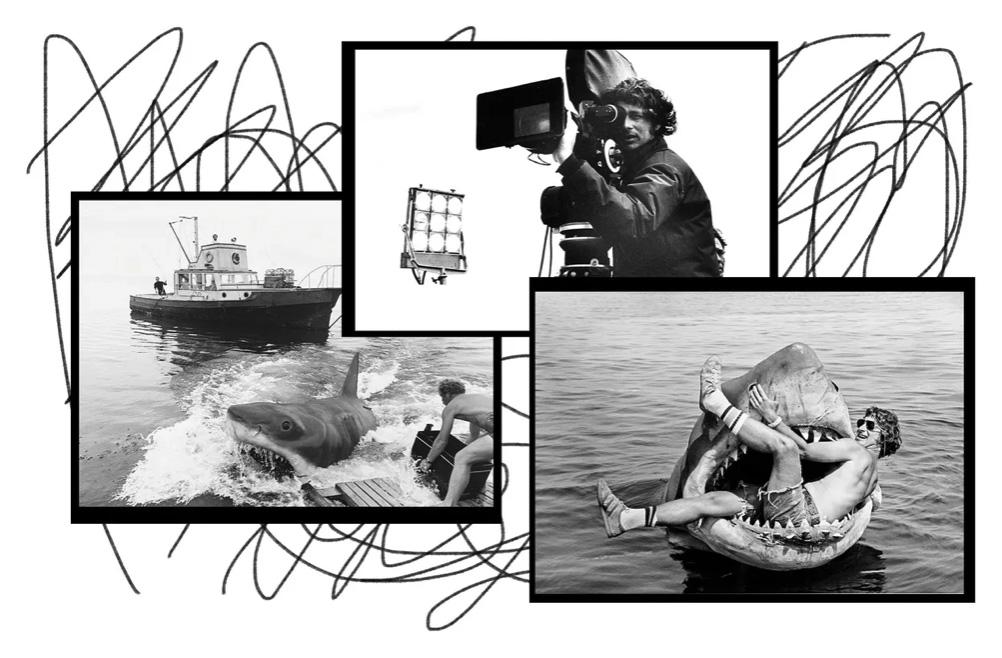“Jaws Became a Living Nightmare”: Steven Spielberg’s Ultimate Tell-All Interview

“Jaws” was Steven Spielberg’s second feature film, his first full-scale blockbuster, and one of the most backbreaking projects he ever directed. At times the 1975 film’s shoot in the Atlantic Ocean made the then 27-year-old filmmaker fear his own career was sinking to the bottom of the sea alongside his perpetually malfunctioning shark.
In this extensive interview excerpted from the new book “Spielberg: The First Ten Years,” author and filmmaker Laurent Bouzereau goes long with the Oscar winner about all aspects of the now-classic movie, from alternate casting possibilities (Lee Marvin, Jon Voight, and Jeff Bridges among them) to the near-revolt he faced from the crew, and the apology he makes to the special effects team who built the mechanical Great White. Some of his tales are downright comical, like the director’s efforts to secure the rights to a dirty rhyme that Quint actor Robert Shaw stole from an Irish tombstone, and a discarded opening-credits concept he calls “one of my bad ideas.”
“What he describes in the book, having a bit of a nervous breakdown over it, was so powerful to me, because that really shows the struggle and the toll that this took on him,” says Bouzereau, who also directed the documentaries “Natalie Wood: What Remains Behind” and “Five Came Back,” about Hollywood during World War II. He has been interviewing and writing about Spielberg for more than three decades.
By focusing on the director’s early years in his book, which will be released on October 24, Bouzereau found Spielberg to be surprisingly candid. “It probably felt like a safer time to be introspective about the past,” he says. “It’s oftentimes easier to talk to filmmakers about their past work with the perspective of time, rather than when they’re actually trying to sell something in the moment. There’s a vulnerability that exists at the time.”
The book, which spans Spielberg’s 1971 TV movie “Duel,” which was so acclaimed and popular that it was released theatrically, to his first theatrical-only movie, “The Sugarland Express,” through the megahits “Raiders of the Lost Ark” and 1982’s “E.T. the Extra-Terrestrial.”
“When I was writing the book, I needed to find, what is the real theme of those first 10 years?” Bouzereau says. “The thing that I discovered is that all those films are a variation on ‘home.’ In “Duel,” you have a man who is being pursued by this killer truck. He may never go home. “The Sugarland Express” is about this couple trying to get home and be reunited with their kid so that they can have a home. “Jaws” is about a man who leaves New York to form a new home in Amity Island, and what do they sing when they’re on the boat chasing the shark? ‘Show me the way to go home…’
“Then you go to “Close Encounters,” about a man who leaves home. “1941” is about the attack on the homeland. “Raiders” is about a man with virtually no home. And we end with, ‘E.T. phone home.’ And so I explained it to him exactly like I’m saying it to you, and he’s like, ‘I guess I’ve never been far away from home.’”
That may be one reason “Jaws” remains such a traumatic memory for the filmmaker. Having worked so hard to establish a home in the hard-fought industry of Hollywood, Spielberg saw his prospects swirling around the drain—pursued by a 25-foot shark.
You can read the interview here at Vanity Fair.
